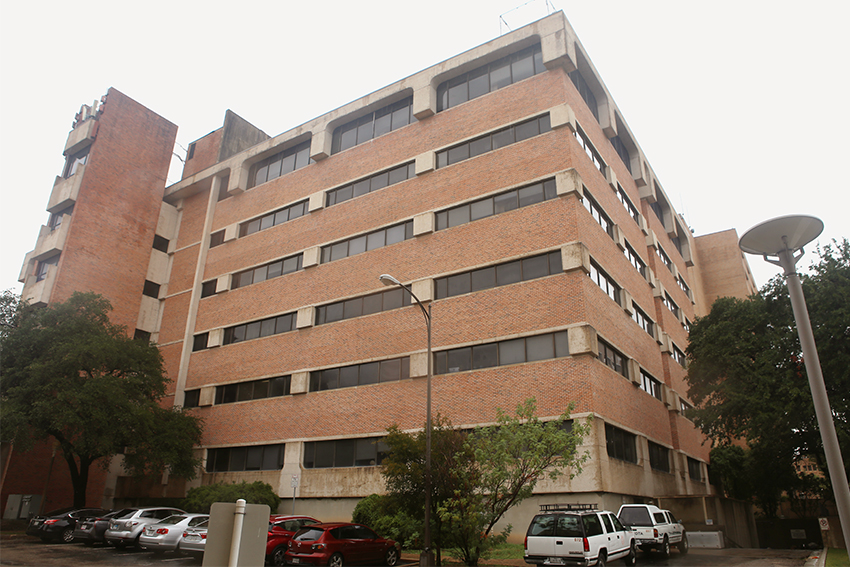The UT Board of Regents is requesting $100 million from the Texas legislature to renovate the J.T. Patterson Laboratories Building.
Built in 1967, the Patterson Labs building needs updated lab spaces that are multi-functional to help recruit new researchers from varying fields, building manager Dwaine Benson said.
“If (researchers) are looking for a state-of-the-art facility for their research, Patterson would not be one of the ones that they’re looking to come to,” Benson said. “There’s nothing state-of-the-art in this building. They’re going to renovate and upgrade lab spaces and make them more versatile so you can have different disciplines of research (in the labs).”
The renovations will also provide new mechanical infrastructure and will correct system failure risks and safety code issues, according the Board of Regents’ agenda.
The reconstruction will take about four years, but that time frame is subject to change due to the complexity of Patterson lab’s design, said David Rea, associate vice president for campus planning and project management.
“The first step would be to get the funding,” Rea said. “Then you’ve got to hire a design team and contractors and do the planning and construction. You have to find (out) how you can make the construction happen with
research ongoing.”
Rea said he does not know yet whether students and classes will be displaced during the renovations.
Known as a tuition revenue bond request, the $100 million ask will go before the Texas Legislature when the session convenes in January.
“The legislature authorizes higher-ed institutions to go out and build buildings or to renovate buildings with the commitment that they will provide appropriations to pay the debt service on those construction projects,” said Barry McBee, special assistant to the chancellor.
The legislature’s commitment is subject to change because they are not obligated to actually pay the University back for its investment, McBee said.
“There’s what we’ve always thought of as a moral commitment on the part of the legislature to continue to fund that debt service,” McBee said.
If the legislature does not fund the project, the renovations could be funded by the Board of Regents through its debt capacity, but it comes down to how much the legislature is willing to support the project, McBee said.
“If (the legislature does not fund the request), my guess is we’ll be back asking for the projects again in 2021,” McBee said.




















